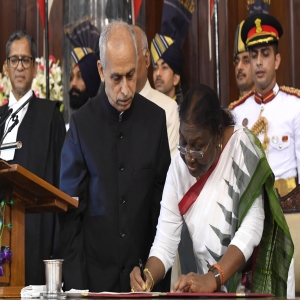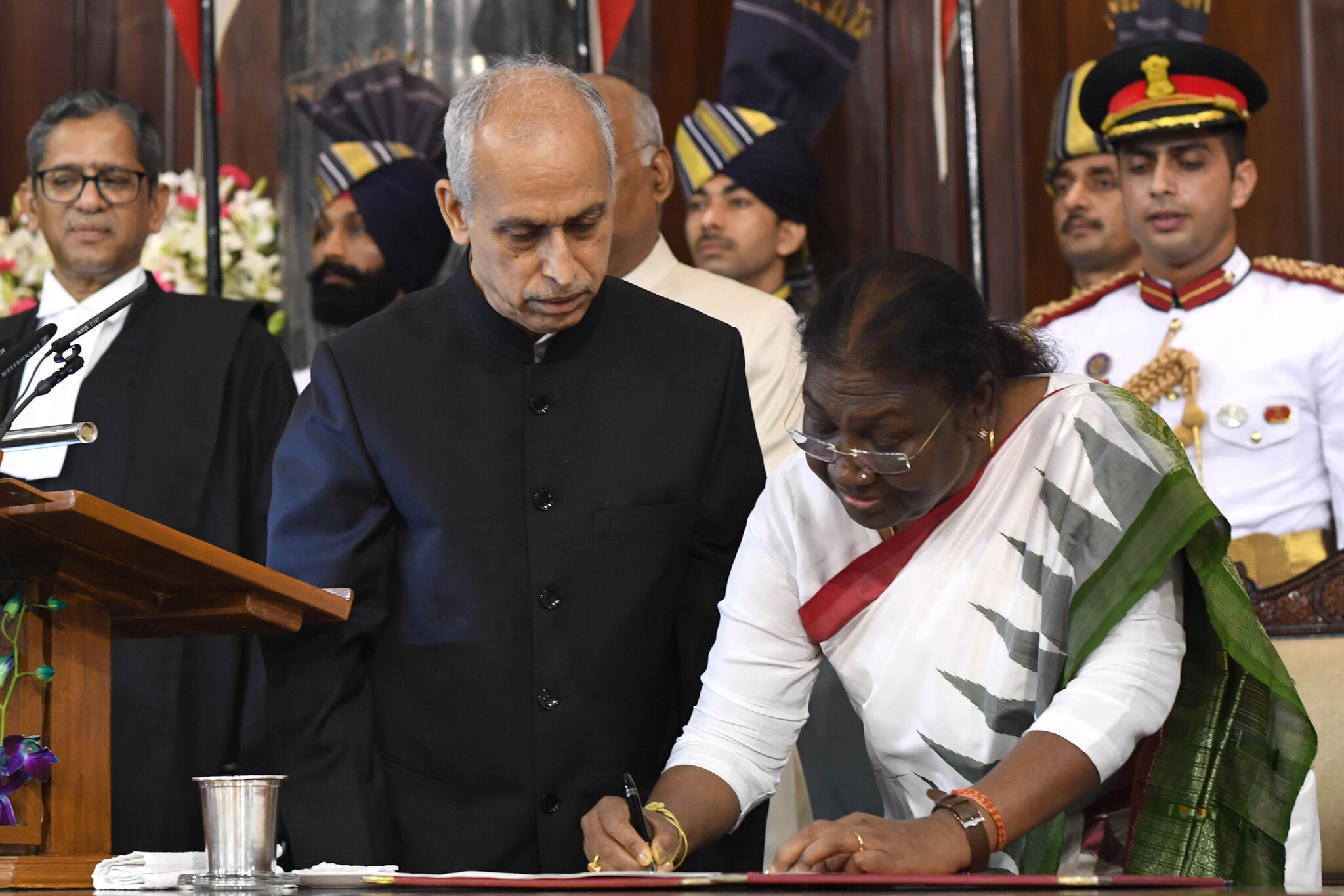
.png) Joseph Maliakan
Joseph Maliakan

The verdict of the Constitution Bench of the Supreme Court in the Presidential reference case is a severe blow to the federal principles of the Indian Constitution. A constitution bench of the Supreme Court, comprising the Chief Justice of India, BR Gavai and Justices, Surya Kant, Vikram Nath, PS Narasimha and Atul S Chandukar on Thursday, November 20, 2025, held that the directions in the Supreme Court's April 11, 2025 judgement that set timelines for Governors and the President to give assent to the bills passed by the legislatures are incorrect and against the principle of separation of powers.
The judgment came on a reference made by the President of India, Droupadi Murmu, under Article 143(1) of the Constitution of India. It empowers the President to seek the Supreme Court's legal opinion on matters of public importance.
The Presidential reference was made following the April 11 judgement by a SC bench of Justices JB Pardiwala and R Mahadevan in State of Tamil Nadu v The Governor of Tamil Nadu & Anr. The order, in unequivocal terms, said that the Governors must act within a reasonable time, and that constitutional silence could not be used to cripple the democratic process.
True, as noted in the April judgment, the Constitution of India does not prescribe any time limit for the discharge of functions by the Governor under Article 200. However, the order added that the Article could not be interpreted in such a manner as to mean that the Governor is free to sit over the bills presented to him and block the work of the legislature.
Consequently, the SC laid down a timeline for the Governors' actions. It is pertinent to reiterate that Tamil Nadu Governor N Ravi, acting almost like a super chief minister, sat on bills passed by the legislature for more than two years.
The SC therefore gave the following directions to the Governors, which were welcomed by all opposition-ruled state governments, especially Tamil Nadu, Kerala, and West Bengal, which have been tormented by Governors appointed by the National Democratic Alliance (NDA) Union Government:
1. In the case of withholding assent to a bill, the Governor must return the Bill, together with a message, within a maximum period of one month.
2. In the case of a withholding of assent, the Governor must return the Bill, together with a message, within a maximum period of three months.
3. In the case of reservation of the Bill for the consideration of the President, the Governor shall make such reservation within a maximum period of three months.
4. In the case of presentation of the Bill after reconsideration, the Governor must, in accordance with the first proviso, grant ascent forthwith, subject to a maximum period of one month.
Failure to comply with these timelines, the SC said, will render the Governor's inaction subject to judicial review. Concerning the President's powers under Article 2001, the SC held that her decision-making will also be subject to judicial review and must be taken within three months.
The Constitution Bench, overturning the April judgment, observed that the discharge of functions under Articles 200 and 200(1) by the governors and the President are not justiciable. However, the Court can step in only when there is an inordinate and unexplained delay, and each case must be decided on its own merits.
At the same time, the bench said that the governors cannot act as super chief ministers and there cannot be two executives in a State.
In this context, it will be pertinent to read Article 200, which deals with the Governor's power to give assent to or reject a bill. When a bill is presented to the Governor, "the Governor shall declare either that he assents to the Bill or that he withholds assent therefrom or that he reserves the Bill for the consideration of the President:"
Provided that the Governor may, as soon as possible after the presentation to him of the Bill for assent, return the Bill if it is not a Money Bill together with a message requesting that the House or Houses will reconsider the Bill or any specified provisions thereof and, in particular, will consider the desirability of introducing any such amendments as he may recommend in his message and, when a Bill is so returned, the House or Houses shall reconsider the Bill accordingly, and if the Bill is passed again by the House or Houses with or without amendment and presented to the Governor for assent, the Governor shall not withhold assent therefrom."
So, the Constitution of India gives no room for governors' discretion in the matter of assent to bills. The matter has been dealt with very clearly by Wade and Phillips' Constitutional Law (3rd ed., pp. 93, 96):
"In law, the Governor can refuse to give assent to a Bill, i.e., he can veto a Bill. If he does so, the Bill cannot become an Act. But in the form of Government set up under the Constitution it would be politically impossible for a Governor to refuse his assent to a Bill after it has been passed by the legislature, because he acts in this matter, as in all public matters, on the advice of his Cabinet, and no Bill could pass through .both the Houses and come before the Governor for his assent if it was opposed by the Cabinet. The position of the Governor in this respect is analogous to the King of England. In theory, the King can also refuse to give his assent, but the right to veto has not been exercised since the reign of Queen Anne! It may be said to have fallen into disuse as a consequence of ministerial responsibility. The veto could only be exercised on ministerial advice, and no Governor would wish to veto Bills for which it was responsible or one for the passage of which it had afforded facilities through the ministry."
However, the Governor's power to reserve a Bill for the President's consideration is discretionary. It is their discretion whether to reserve the Bill for the President's consideration. In this respect, the Governor serves as an important link between the Union and the States, thereby enabling the Union to exercise some control over the States' legislative activities.
For example, the Kerala Education Bill of 1957 and the Kerala Agrarian Reform Bill of 1957, passed by the State Legislature were reserved for the consideration of the President and later returned by him for reconsideration by the State Legislature, the former in the light of the advisory opinion of the Supreme Court of India and the latter in the light of the changes suggested by him. The Madhya Pradesh Panchayat Bill of 1961 was reserved by the Governor for the President's consideration. It was returned because some of its provisions were undemocratic and contrary to the Directive Principles of the Constitution.